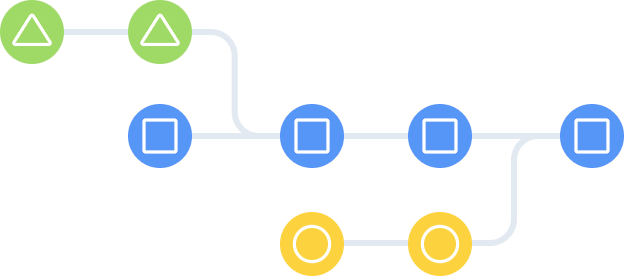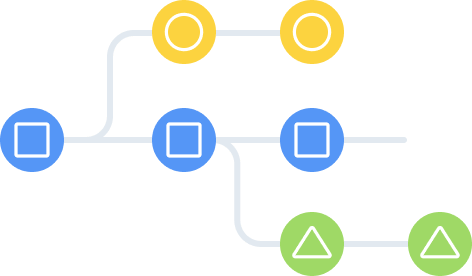What is HTML and CSS and why should I learn it?
Is HTML a coding language? Is CSS a programming language? The technical answer is no, but they are computer languages that are required for all web developers and most web designers. HTML determines the structure of a web page, and will let you define elements like headers, paragraph structure, links, images, and more. CSS, on the other hand, determines the layout and design of the web page. With CSS, you’ll work with fonts, colors, backgrounds, and even animations and 3D effects.
Since HTML and CSS are both considered front end languages, you’re probably thinking, should I learn HTML and CSS before JavaScript? As HTML and CSS are easier to learn, the general consensus is that you should learn HTML and CSS first. Then, if you want to dive into programming more, JavaScript would be your natural next step.
HTML and CSS alone are also useful languages for professionals in all fields. You can design emails, optimize WordPress sites, and build your own resume website from scratch. While there aren’t many pure HTML CSS jobs out there, HTML and CSS are must-knows for front end developers and are extremely helpful for designers, marketers, and product managers to give them an upperhand in the market.
Why should I practice HTML/CSS by building projects?
Project-based learning is a method of learning where you learn a skill through working on a project. This type of learning allows you to learn not only the theory, but also how to apply those skills.
By building a HTML/CSS project, you'll practice the high-level logic of your code and project, and see how each individual line can impact your application. You will also gain problem-solving skills and how to fix it. With so many HTML/CSS projects available, finding an idea that interests you will make the learning process more fun and sustainable.
When you finish building a project, you will have learned and practiced HTML/CSS techniques, gained problem solving skills, learned how to ask questions, and have a finished project to show off.
How do I know which HTML/CSS projects are best for learning HTML/CSS?
The best way to learn HTML/CSS is to practice HTML/CSS by building as many projects as possible. There are three factors you should consider when picking the right HTML/CSS project: your skill level, goals, and interest.
You want to have a good idea of your skill level and choose HTML/CSS practice projects that are not too easy or too hard for you. If you work on HTML/CSS projects that are too easy, you won’t progress in your coding abilities. However, if you choose projects that are too difficult, you may get stuck, never finish the project, and feel discouraged. Therefore, you want to choose HTML/CSS projects that are just a little bit above your current skill level.
Now, you also want to build HTML/CSS projects that not only allows you to practice HTML/CSS, but also lets you show off your skills on your portfolio. So think about the types of HTML/CSS projects you want to put on your portfolio and jobs you’re interested in as a developer. Think about what your long-term goals are and pick HTML/CSS projects that align with them.
Lastly, you definitely want to choose HTML/CSS projects that you’re actually interested in and feel connected to. Learning by building HTML/CSS projects you’re interested in will help you stay motivated. You’ll also be more likely to want to go above and beyond to make your HTML/CSS project stand out in the crowd.
Can HTML/CSS beginners learn by building HTML/CSS projects?
HTML/CSS projects are a great way for beginners to learn. Two major obstacles beginners face when learning HTML/CSS are not knowing why you’re learning HTML/CSS and losing motivation. By learning HTML/CSS through building projects, you will be able to overcome both hurdles.
When you’re learning HTML/CSS, you may not know how to apply HTML/CSS theories in the real world. But when working on beginner HTML/CSS projects, you immediately learn how each line of code impacts your project. By giving theory context, you’ll understand how to apply theories and find more resources to complete your HTML/CSS project. These HTML/CSS projects for beginners can also help you build up your portfolio early on. Each HTML/CSS project you finish can be incorporated into your portfolio to demonstrate your new skills.
Another issue that often comes up for beginners is losing motivation. However, when it comes to projects, you can pick a beginner HTML/CSS project that you’re interested in. Not only will you be more motivated when you work on something interesting, you’ll also want to continue to improve the project. As your HTML/CSS project comes together, the sense of accomplishment will give you the momentum to keep going, even when things get hard. Additionally, you’ll learn how to approach problems from multiple angles and teach yourself how to search for answers. The ability to problem-solve is arguably one of the most important skills a developer should have.
















